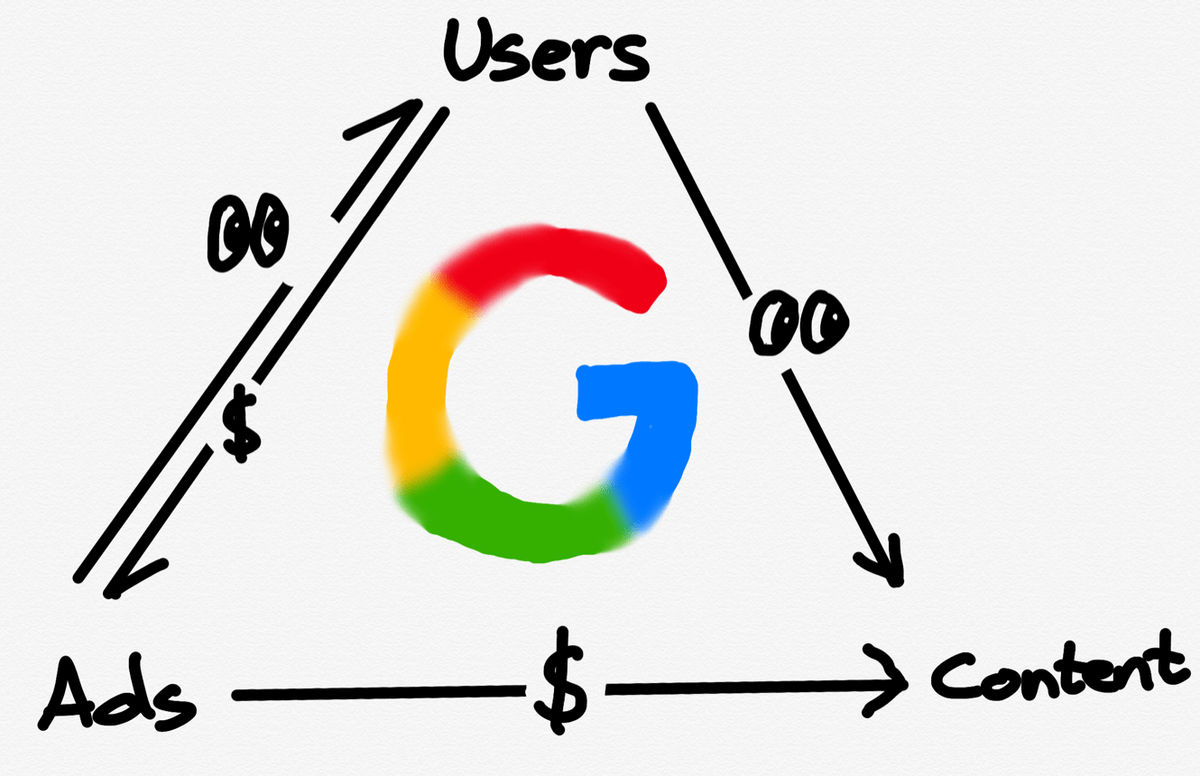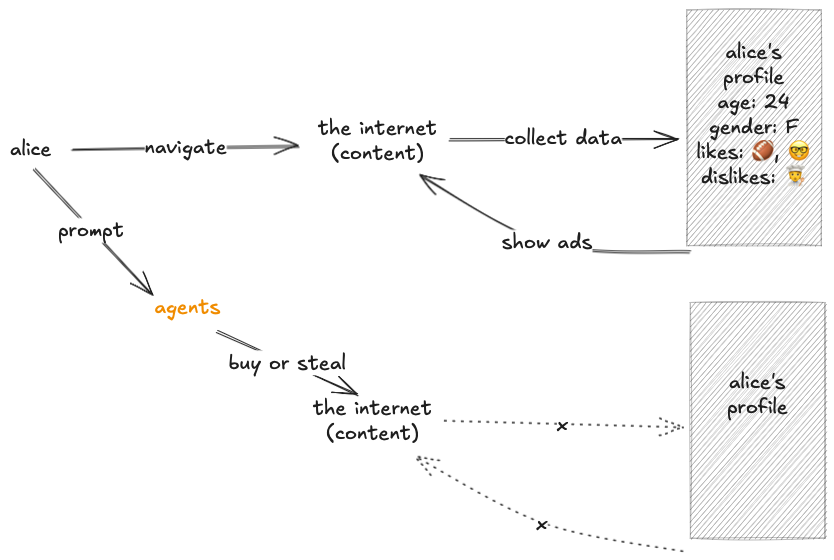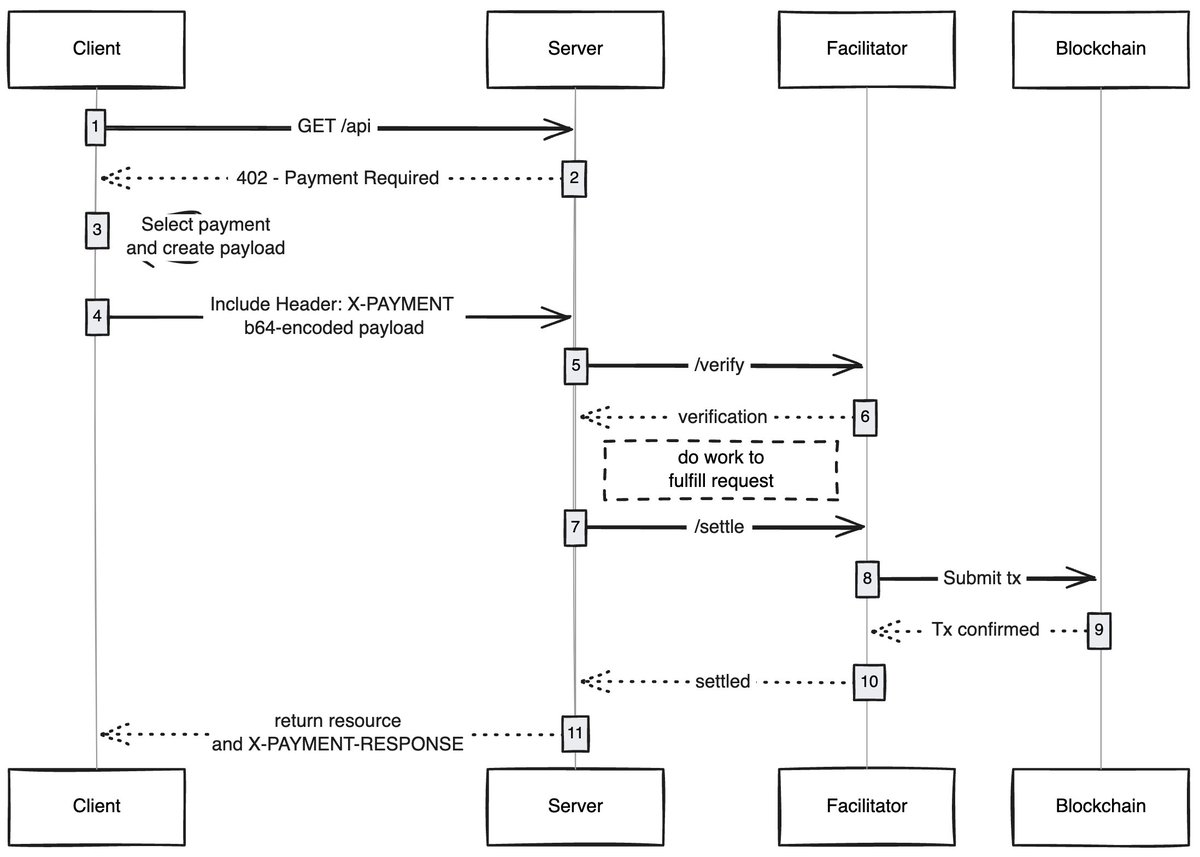撰文:aryan
编译:Tia,Techub News
几十年来,在线广告一直是互联网生存的唯一方式。
每个人都在争夺关注。为了做到这一点,公司会收集您周围的所有可能的数据,并创建用户资料并向您展示广告。

在互联网上,这种单一的模式开启了一个如今价值数万亿美元的市场。
金融一直存在于互联网中:
- 与支付提供商合作
- 设置付费墙限制网站访问
- 或者展示广告
但一直以来,都没有任何方式能让小额支付(1 美元)在经济上可行(Visa/Mastercard 每笔交易会收取约 2% + 0.10 美元),因此广告成为了唯一的模式,能让:
- 用户免费访问海量内容;
- 广告商获得精准用户以推销产品;
- 内容发布者获得收入。
这是一个三方共赢的体系。
当世界正走向代理(Agent)时代:
- 代理正在成为内容的消费者,而非人类本身,它们充当中间层。
- 广告商将无法再直接定位人类用户,广告经济将因此崩塌。
- 代理要么窃取(爬取)内容,要么购买内容。
- API(应用程序接口)将成为默认的通信模式,取代浏览器或代理浏览器。

爬取或窃取内容对于整个互联网而言在经济上是不可持续的,因此内容发布者将转向对网站内容收取小额费用,代理也将需要一种方式来完成支付。几十年来,小额支付一直不可能实现,直到区块链的出现。
像 solana 这样的区块链,让小额支付可以在规模化条件下实现,而不会「掠夺」用户。
x402 是一个基于 HTTP 402 状态码精神构建的标准,它创建了一个统一接口,用于:
- 消费者支付内容费用;
- 发布者收取内容费用;
- 且无需中间人(Visa/Mastercard),
从而使「代理式小额支付」成为可能。

任何客户端(无论是代理或浏览器)发送访问内容的请求时,内容主机会回应一项「需为内容付费」的要求,客户端完成支付后即可获得访问权限,从而为「代理互联网」解锁了一个新的经济体系。
我对以下用例感到兴奋:
- 无 Gas 用户体验(gasless UX):我认为一个尚未被充分探索的点,是 x402 如何让用户交易在任何网络上都实现无 Gas 操作。 用户只需在钱包中持有资产即可。
- x402 浏览器:有人应该直接 fork Chromium,并将 x402 内置进浏览器。Brave 应该去做这件事——他们在加密领域拥有良好声誉,已经内置钱包,默认支持 IPFS。在我看来,他们是最接近能做到这一点的人。
- 链上集市(onchain bazaars):就像传统市场一样,存在「可发现性」问题。Coinbase Developer Platform 通过引入「bazaar(印地语中意为市场)」的概念解决了这个问题,但这些是链下维护的集市,因此总会带有一定门槛。应该有人建立一个链上目录,任何人都可以在上面添加自己在售卖的内容(API、新闻简报、书籍等),并在目录中内置评分机制,就像 OpenRouter 为模型打分那样。
- 跳过广告(skipping ads):与任何新技术一样,世界需要时间去采用 x402。在此期间,可以通过小额支付来跳过广告——这是 x402 的一个很自然的演进方向。你可以设置每日的消费上限,然后当你访问 YouTube 时,x402 浏览器会自动为你跳过广告,并向广告商支付相应费用。
我总是对一种简单技术能开启全新经济体系感到惊叹,x402 就是其中之一。
如果你正在这个领域构建产品——无论是在卖方还是买方——请联系我,我们正在为你们创建一些东西。
免责声明:本文章仅代表作者个人观点,不代表本平台的立场和观点。本文章仅供信息分享,不构成对任何人的任何投资建议。用户与作者之间的任何争议,与本平台无关。如网页中刊载的文章或图片涉及侵权,请提供相关的权利证明和身份证明发送邮件到support@aicoin.com,本平台相关工作人员将会进行核查。



